Year 2020 will go down in history has one of the most terrific years in human history worldwide.
Aside the novel coronavirus pandemic which is now in its second wave worldwide, countries have had to deal with various challenges resulting in the death of citizens.
Today (Thursday, December 31) being the last day of the year (2020), Nigerians amongst other citizens of the world are probably the happiest and most optimistic that the incoming year 2021 will be a better year.
However, as the year gradually exit the stage, here are some notable personalities lost.
- Kayode Odumosu (Pa Kasumu)
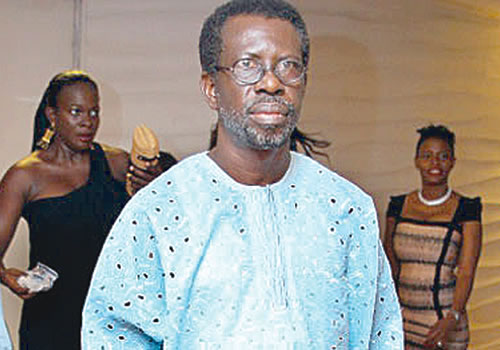
Veteran Nollywood actor, Kayode Odumosu popularly known as Pa Kasumu died on March 1 after a brief illness.
Before his death, he was said to have battled ill health for a while.
His health had become a cause for concern for members of the public when a video of his frail state surfaced online last year.
He had previously admitted battling a partial stroke that affected his left side and his sight.
2. Senator Rose Oko
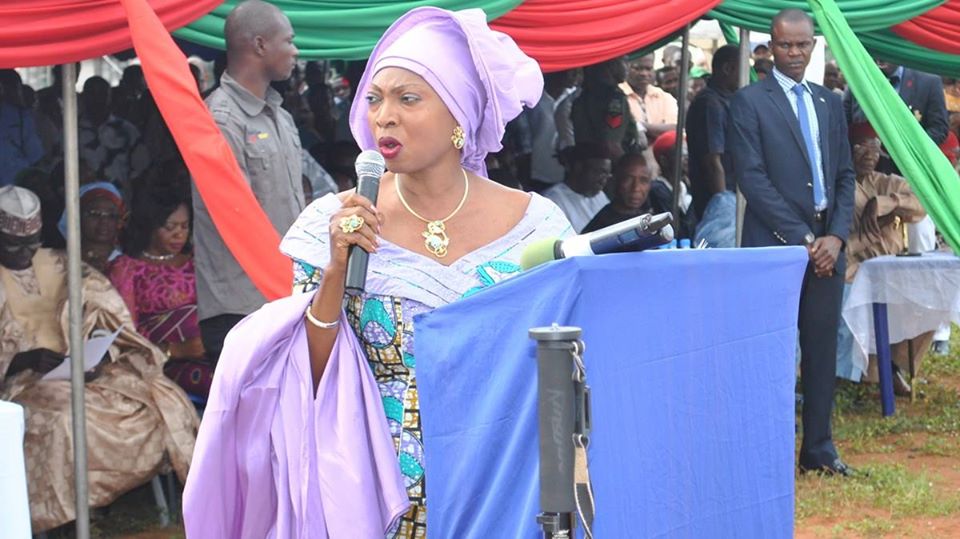
The Senator representing Northern Senatorial District of Cross River State, Dr (Mrs) Rose Okoji Oko died on March 23, 2020 at a UK medical facility.
She passed on at the age of 63. Born in September 27, 1956.
Before her death, she was chairman, Senate Committee on Trade and Investment of the current Ninth Assembly. Oko was also a member of the House of Representatives when she represented the Yala/Ogoja Federal Constituency in the 7th National Assembly.
The late senator was elected into office as the first female representative from her constituency in June 2011 and was Deputy Chairman House Committee on Education.
She was elected as the first female representative from her Senatorial District in June 2015, and re-elected in 2019.
3. Abba Kyari
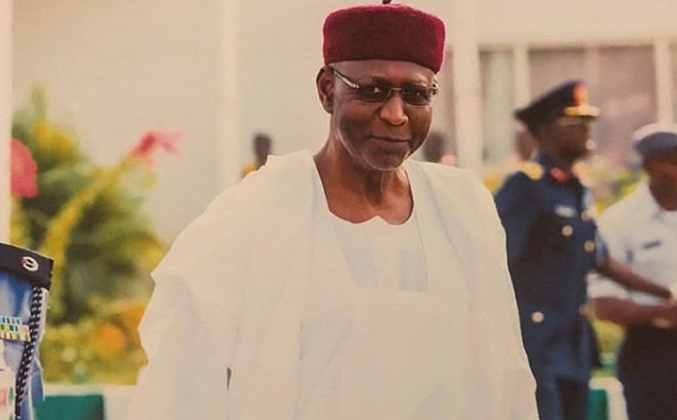
The entire landscape was in shock on April 17 with the official announcement of the death of the Chief of Staff to President Muhammadu Buhari, Abba Kyari.
His death reportedly from COVID-19 infection had jolted the entire populace to the grim reality of the deadly Coronavirus pandemic.
He was believed to have contracted the virus while he was away in Germany on official assignment.
He was aged 67.
4. Richard Akinjide

Second Republic Attorney General and Minister of Justice, Chief Richard Akinjide was among the prominent Nigerians who succumbed to the cold hands of death in the outgoing year. He was 89, died April 21.
The spokesperson of the family, Abayomi Akinjide, said the former AG was buried in line with COVID-19 protocols.
5. Ibidun Ighodalo

Ibidun Ighodalo, wife of the flamboyant pastor of Trinity House church Itua Ighodalo, died in the early hours of Sunday, June 14.
The family, however, was not forthcoming on the cause of her death, saying that they would appreciate some privacy as they mourned her death.
She was the founder of Ibidunni Ighodalo Foundation (IIF), non-profit making organization she started to raise awareness about infertility and provide grants for couples requiring fertility treatments.
6. Sikiru Osinowo
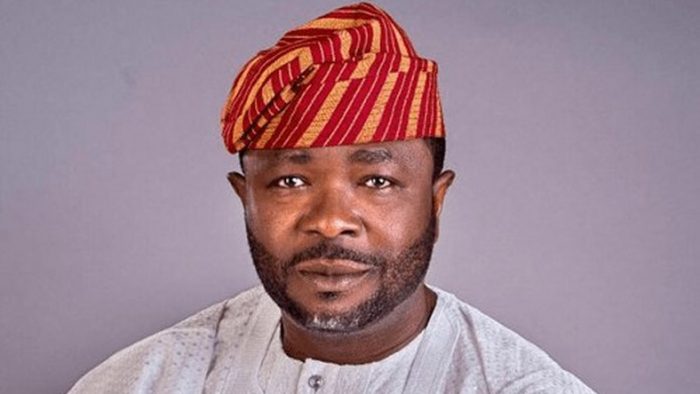
A day after Ibidun Ighodalo’s death, the news also broke of the death of the senator representing Lagos East, Senator Sikiru Osinowo.
Osinowo was said to have died on June 15 at First Cardiology Consultants after battling with an ailment associated with coronavirus.
He was aged 64.
7. Dan Foster
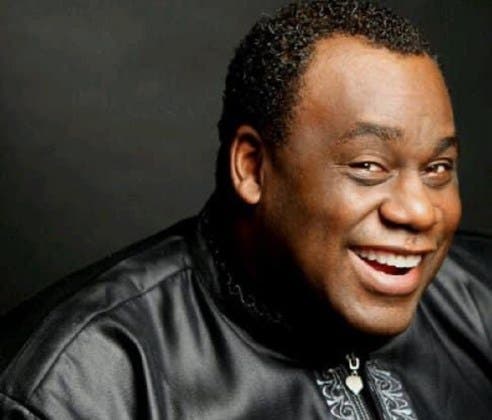
Popular on air personality, Dan Foster a.k.a. the Big Dawg succumbed to death on June 17 after he reportedly contracted COVID-19.
He was until his death was one of the most prominent online personalities in the country.
He was said to have died after respiratory complications from COVID-19.
8. Abiola Ajimobi

Former governor of Oyo State, Senator Abiola Ajimobi departed the world on June 25 after weeks of his rumoured battle with COVID-19.
Aged 70, he was said to have died from multiple organs failure following complications from coronavirus infection.
He was on the verge of assuming office as the interim national chairman of the All Progressives Congress (APC) at the time he died.
9. Tolulope Arotile

The entire nation was thrown into mourning on July 14, 2020 with the news of the death of Tolulope Arotile, a 25-year-old flying officer reputed as Nigeria’s first female combat helicopter pilot in the 55 years existence of the Nigerian Air Force (NAF).
A native of Iffe in Ijumu Local Government Area, Kogi State, her brilliant career was halted when she was inadvertently hit by the reversing vehicle of an excited former Air Force Secondary School classmate while trying to greet her in Kaduna, according to a release by the NAF.
An official release by the NAF says as at October 2019, the late Tolulope had acquired 460 hours of flight within her 14 months of flying a helicopter.
10. Ismaila Isa Funtua
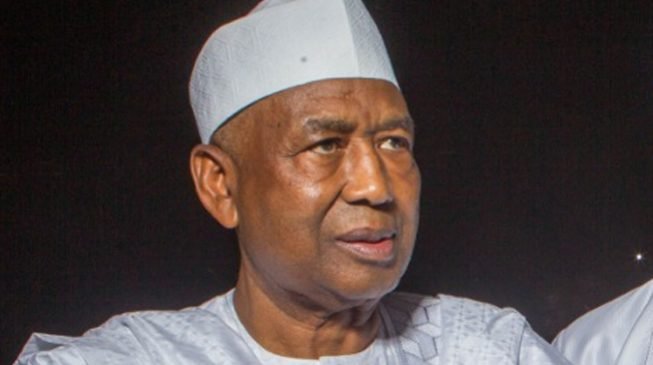
Mallam Ismaila Isa Funtua, a former president of Newspapers Proprietors Association of Nigeria died on July 20 after a brief illness. Born in January 1942, the Second Republic Minister of Water Resources and member of the Constitutional Conference convened during the regime of the late Gen. Sani Abacha, was said to have driven himself to the hospital before he gave up the ghost.
Until his death, he was reputed as one of the most influential politicians and businessmen in the country. He founded The Democrat, a Kaduna based authoritative newspaper on political matters, and also owned a construction firm renowned for building the magnificent office of the Civil Service of the federation.
11. Tunde Buraimoh

Hon. Tunde Buraimoh, who until his death on July 10 was the Chairman of the Lagos State House of Assembly Committee on Information and Strategy, was one of the prominent politicians the state and the rest of Nigeria had to mourn during the year.
He was said to have died in a hospital around Ikorodu. Details of the cause of his death were sketchy, but reports said he had been absent from plenary for about two weeks before he passed on.
The representative of Kosofe 2 Constituency was reputed as an active and eloquent member of the House.
12. Pa Ayo Fasanmi

Chief Ayo Fasanmi, a prominent leader of the Yoruba socio-cultural group, Afenifere, died on July 29.
The nonagenarian was said to have died in Osogbo, Osun State capital, after a brief illness.
He was aged 94.
13. Buruji Kashamu
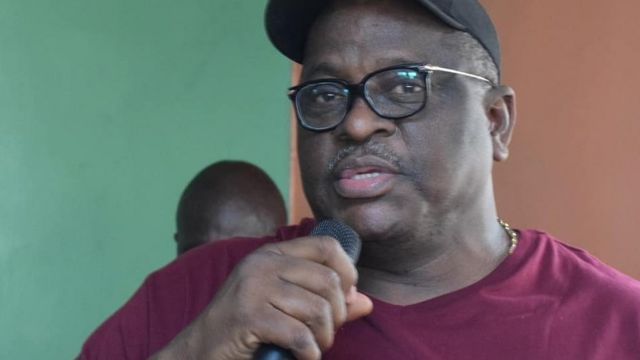
Billionaire businessman and member of the 8th Senate representing Ogun East, Chief Esho Kashamu popularly called Buruji Kashamu, is among the prominent Nigerians who have died of complications from COVID-19 infection.
Breaking the news of his death on twitter on August 8, Senator Ben Murray-Bruce said Kashamu died at First Cardiology Consultants, Lagos at the age of 62.
14. Majek Fashek
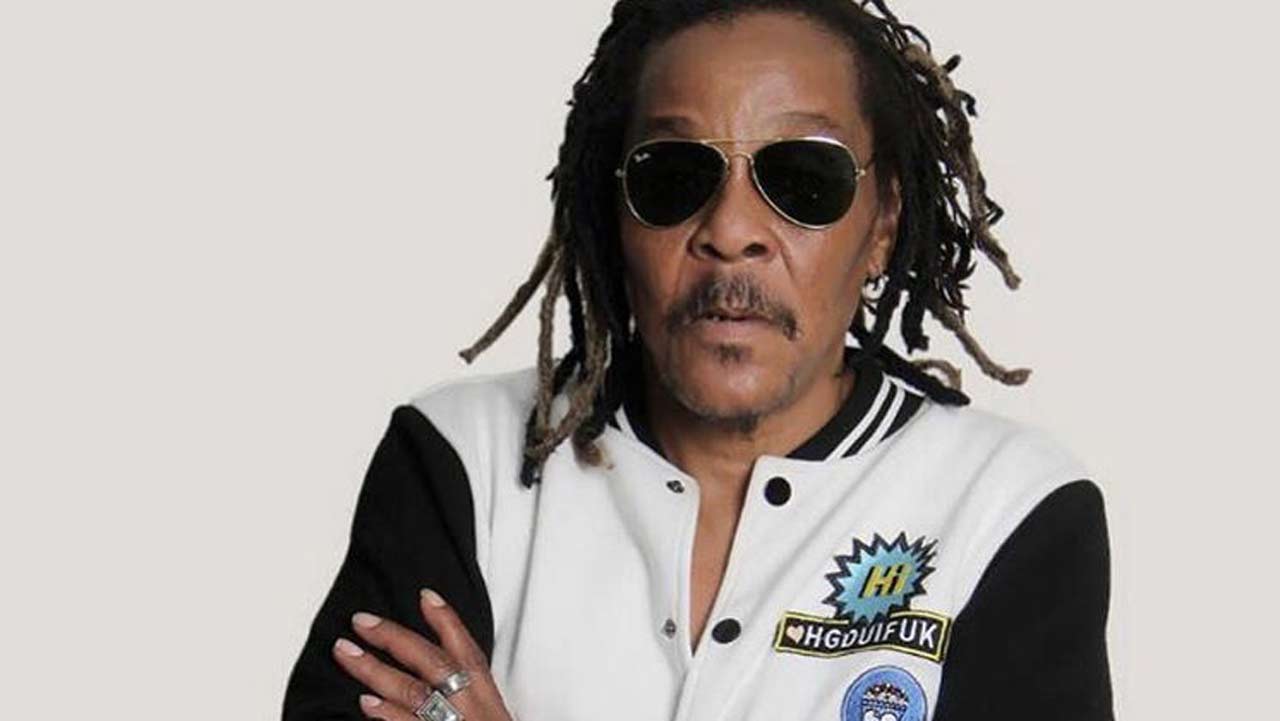
The entertainment world was thrown into mourning in early June with the death of Nigerian reggae star, Majekodunmi Fasheke popularly known as Majek Fashek.
According to his manager, Omenka Uzoma, the ‘Rain Maker’ died in his sleep in New York, USA.
15. First Urhobo Professor of Pharmacy, David Okpako

Foremost Nigerian academic and first Urhobo Professor of pharmacist, Professor David Tinakpoevwan Okpako died on Monday, 7th September at the age of 84 years.
His death was confirmed in a statement by the the Steering Committee of The Urhobo Renaissance Society (URS).
16. Veteran actor, Jimoh Aliu

Popular veteran actor, Alhaji Jimoh Aliu (better known as Aworo) died on Thursday, September 17, 2020 at the Ekiti State University Teaching Hospital (EKSUTH) Ado Ekiti at the age of 80
Aliu was born on November 11 1939 in Okemesi, Ekiti West local government area of Ekiti State. He was a seasoned actor, producer and singer.
In 1959, Aliu joined the Ogungbe Theatre and remained there until 1966. With Ogungbe Theatre he toured almost all towns in old Western Region now Ogun, Oyo, Osun, Ondo and Ekiti. In 1966, he left Ogungbe Theatre, and formed Jimoh Aliu Concert Party. This group was based in Ikare Akoko in Ondo State.
17. Emir of Zazzau
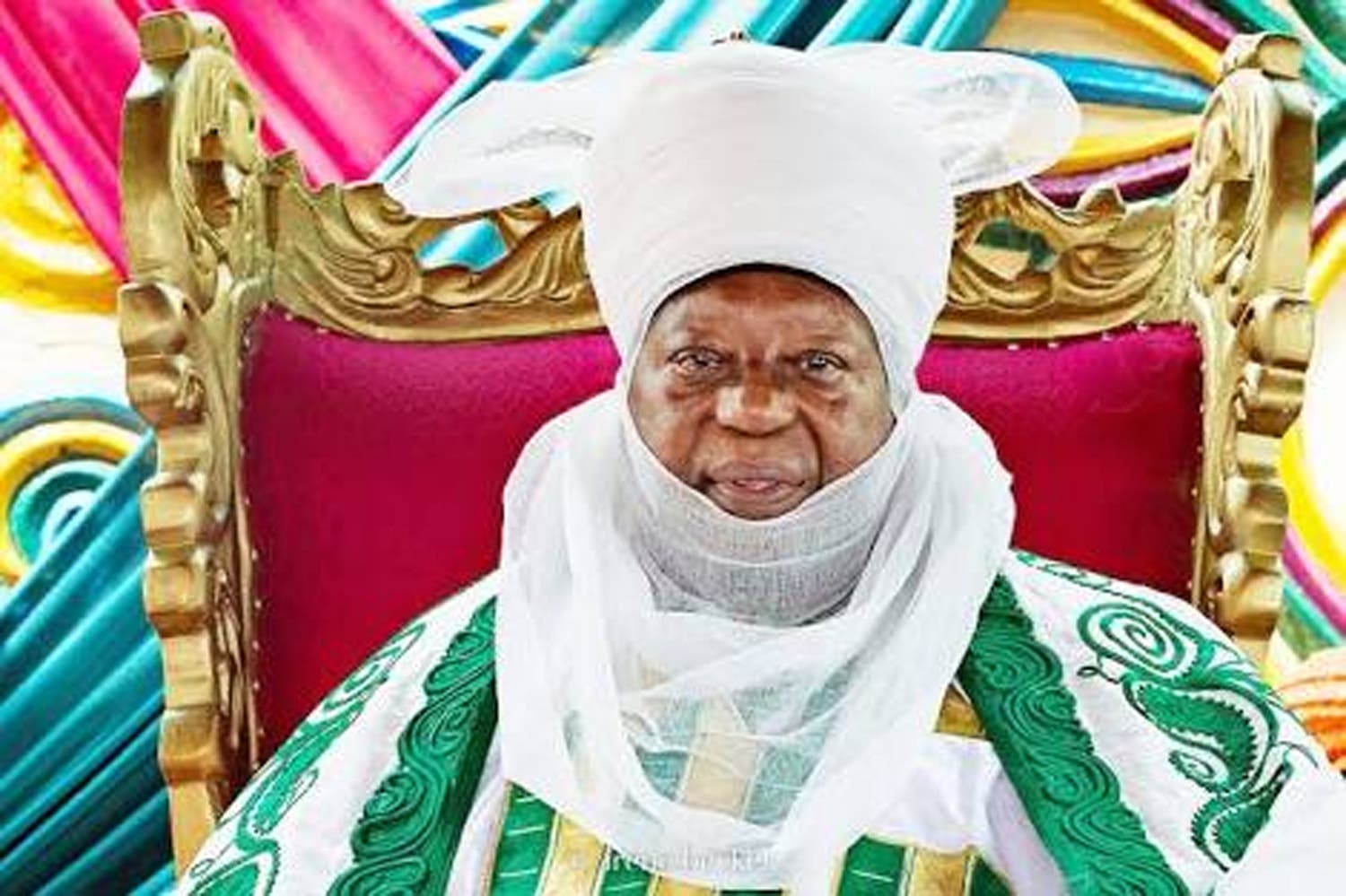
The Emir of Zazzau, Alhaji Shehu Idris, passed on September 20.
He was until his death one of Nigeria’s most influential traditional rulers.
He was aged 84.
18. Renowned writer, Prof. J.P. Clark
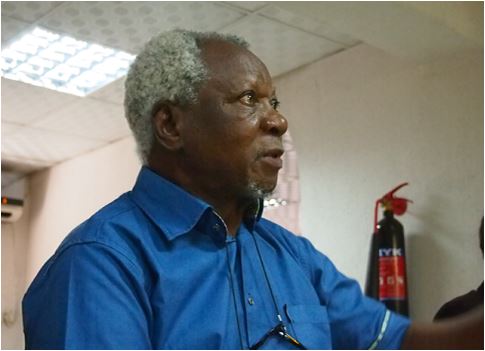
Emeritus Professor of Literature and renowned Writer, Prof. John Pepper Clark has died on Tuesday, October 13, 2020.
TNG reports that Professor Clark, a popular poet and younger brother of former Federal Commissioner for Information and South-South Leader, Chief Edwin Clark died in the comforting arms of his wife, children and siblings.
19. Awolowo’s elderst child, Tola Oyediran
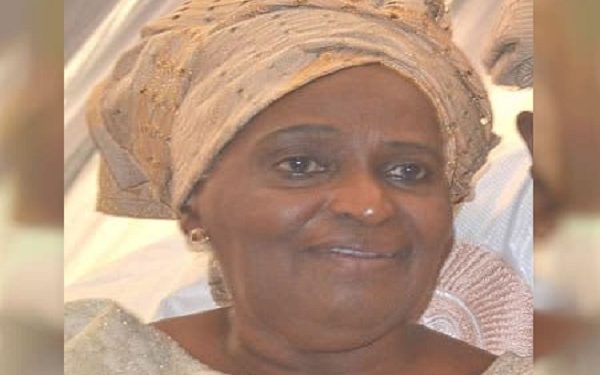
Rev Tola Oyediran, the eldest child of late Western Region Premier, Chief Obafemi Awolowo, is dead.
She passed on around noon on Friday October 16, 2020 at 79 years.
She was billed to celebrate her 80th birthday on December 1.
Until her death, she was the Chairman, Board of Directors of African Newspapers of Nigeria ( ANN) publishers of Tribune titles.
20. Former Presidential candidate, Olapade Agoro
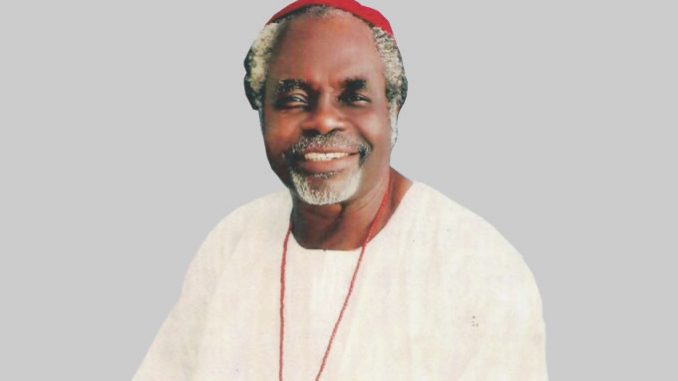
Dr Olapade Agoro, a former presidential candidate of the National Action Council (NAC) died on Sunday November, 1, 2020.
The news of his death was broken by his daughter, Adeola Agoro on her Facebook page.
Agoro, who was 77 years old before his death has been drumming up support for the presidential ambition of Asiwaju Bola Tinubu, National leader of the All Progressives Congress (APC) for the 2023 presidential election.
21. Ex-Kaduna Gov, Balarabe Musa
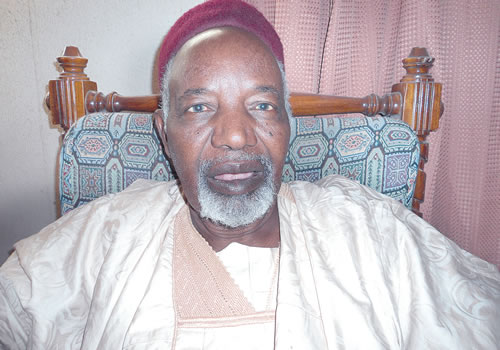
Balarabe Musa, a former Governor of Kaduna State died on Wednesday, November 11.
Mr. Musa was the former Governor of Kaduna State, becoming the first to be impeached in the early 80s.
Musa was elected on the platform of the Peoples Redemption Party of the late Mallam Aminu Kano in 1979 and was impeached on 23rd June, 1981.
He played multiple roles over the last four decades in Nigerian political and socio-economic activities, forming alliances across multiple sections of the country.
22. Professor Peter Ekeh

The death of foremost Professor of Political Science and Urhobo cultural activist, Professor Peter Ekeh was announced on Tuesday, November 17.
TheNewsGuru.com (TNG) reports Prof Ekeh, founder of Urhobo Historical Society (UHS) died on Tuesday morning, according to family sources.
Ekeh, born August 8, 1937, hailed from Okpara Inland of Agbon Kingdom in the Ethiope East Local Government Area of Delta State.
23. Amaka Ndoma-Egba

All things considered, it has been a very tough year for former Cross River senator, Victor Ndoma-Egba, with the death of his wife in a multiple accident in Ondo State on November 20 weeks after his house was looted and razed by hoodlums who took advantage of the EndSARS protests.
Amaka Ndoma-Egba was said to have died alongside six others in the deadly auto crash involving a truck, a commercial Toyota Avensis bus, a Honda car and a Toyota Coaster bus.
Eight others were said to have sustained varying degrees of injuries in the accident.
24. Nassarwa APC Chairman, Philip Shekwo
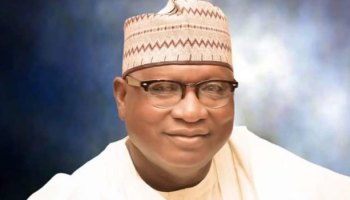
Mr Philip Shekwo, the Nasarawa State Chairman of the All Progressives Congress (APC) who was kidnapped by unknown gunmen on Saturday, November 21 was found dead, Sunday, November 22.
The Police Command in Nasarawa State confirmed the abduction of Shekwo by gunmen on Saturday.
A member of the APC in Nasarawa State, who asked not to be named, confirmed the death of Shekwo.
25. Gen. Domkat Bali
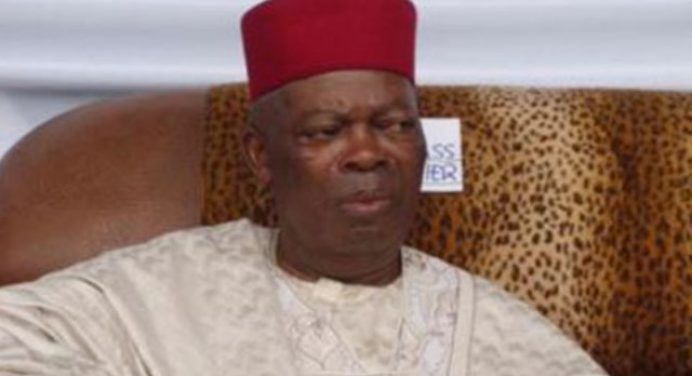
Former Minister of Defence and member of the Supreme Military Council (SMC) between 1984 and 1985, and the Armed Forces Ruling Council (AFRC) of 1985 to 1990, General Domkat Bali, passed on December 4.
Bali reportedly died at the age of 80.
He will be remembered as the chairman of the military panel that sentenced Gen. Maman Vatsa and others who were said to have participated in an attempted coup against the Babangida administration in 1986.
26. Sam Nda-Isaiah
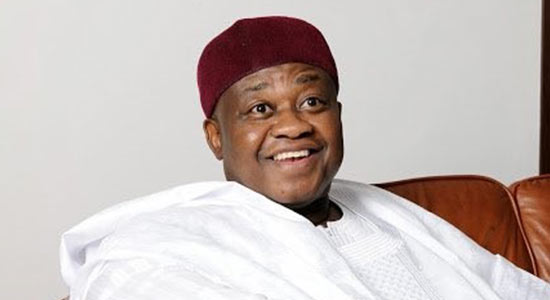
The media industry was thrown into mourning on December 11 with the death of the publisher of Leadership newspaper and one of the presidential aspirants of the All Progressives Congress (APC) in 2015, Sam Nda-Isaiah.
A report in Leadership newspaper quoted his family as saying that the serial entrepreneur and politician died after a brief illness
27. Former minister of education, Prof. Jerry Agada
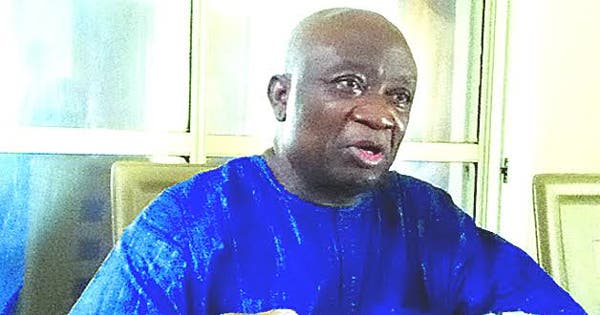
A former minister of State for Education, Professor Jerry Agada passed on Tuesday, December 22, 2020 at the Federal Medical Centre in Makurdi from a brief illness after being hospitalised for over one week.
He was 68 and until his death, a Chairman of Benue State Civil Service Commission.
Agada was also a former National President of Association of Nigerian Authors (ANA).
28. Nigerian Ambassador to US, Sylvanus Nsofor
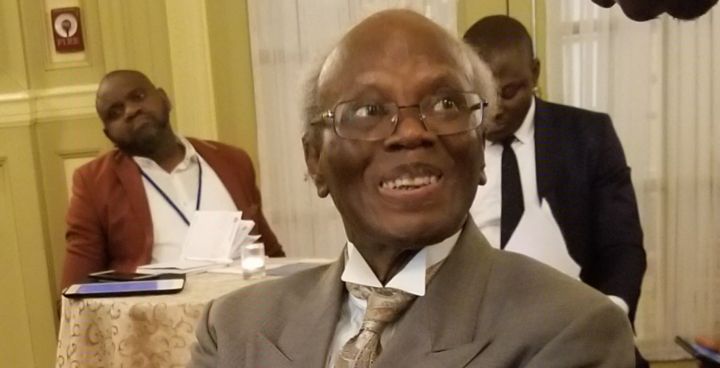
Nigerian Ambassador to the United States, Sylvanus Adiewere Nsofor died on Thursday, December 10 at 85.
A retired justice of Nigeria’s Court of Appeal, Nsofor assumed office as Nigeria’s ambassador to the United States on November 13, 2017.
The envoy succeeded Prof. Adebowale Adefuye, who died towards the end of his tenure as Nigeria’s ambassador to US.
Born on March 17, 1935, in Oguta, Imo State, Nsofor graduated from London’s now-defunct Holborn College of Law in 1962. He also bagged an LL.M from the London School of Economics in 1964.
29. NIPSS DG, Habu Galadima
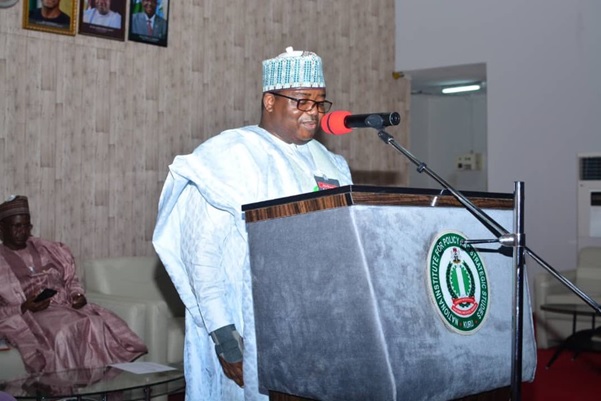
Prof. Habu Galadima, the Director General of the National Institute for Policy and Strategic Studies (NIPSS), Kuru, near Jos died on December 20.
Retired Brig.-Gen. C.F.J. Udaya, the Secretary and Director of Administration of the Institute announced the death in a statement in Jos.
According to Udaya, Galadima, 57, died after a brief illness.
“On behalf of the Board of Governors, management and staff of the institute, we regret to announce the sudden demise of the Director General of NIPSS, Prof. Habu Galadima.
“This occurred this morning, December 20, after a brief illness.
“He will be buried according to Islamic rites,” he said.
30. Ondo commissioner for Regional Integration, Professor Bayonle Ademodi

The Ondo State Government led by Governor Rotimi Akeredolu on Saturday, December 19, lost a member of its cabinet to the cold hands of death.
The Commissioner for Regional Integration, Professor Bayonle Ademodi died on Saturday after battling a protracted disease.
According to reports, Professor Ademodi, a renowned chemical engineer, had been sick for the past six months.
Although the nature of his sickness remained unknown, he recently travelled abroad for medical attention and was away from the state for over two months.
His death was confirmed by the Information and Orientation Commissioner, Donald Ojogo, who described it as sad. Also, the former caretaker chairman of Ondo East Local Government, Wale Akinlosotu, who confirmed the loss of the party chieftain, described Ademodi as a great leader and bridge-builder that was loved by young and old.
He said Ademodi’s death was “a great loss to the All Progressives Congress, APC, family in Ondo State.
31. PANDEF National Chairman and Ex-Military Governor of Akwa Ibom State, Idongesit Nkanga

Nigerians received with shock, the death of National Chairman of the Pan Niger Delta Forum (PANDEF), Idongesit Nkanga on Christmas Eve (December 24).
According to reports, the 68-year-old former military governor of Akwa Ibom State who has had a long battle with the novel Coronavirus disease (COVID-19) surrendered to the illness on Christmas Eve (December 24).
The late Nkanga was Akwa Ibom governor from September 1990 to 1992 during the military regime of General Ibrahim Babangida, handing over to an elected civilian Governor at the start of the Nigerian Third Republic. Ufot Ekaette, who later became the Secretary to the Government of the Federation, was his deputy.
32. Popular Nollywood filmmaker, Chico Ejiro

Renowned Nollywood filmmaker, producer and director, Chico Ejiro who according to reports was active on set on Christmas Eve (December 24) died on Christmas morning (December 25) without any health complains.
Born Chico Maziakpono in Isoko, Delta State, Ejiro is a movie director, screenwriter, and producer.
Ejiro originally studied agriculture, and he was drawn into video production because Nigerians would not buy blank video cassettes.
The sad news of Ejiro’s death came out on Christmas Day but not much detail is known about the cause of the death of the veteran filmmaker.
According to close family sources, Ejiro died on Christmas morning in Lagos State.
Ejiro is married to Joy Ejiro and they have four children.
33. Alhaji Musa Sale Kwankwaso
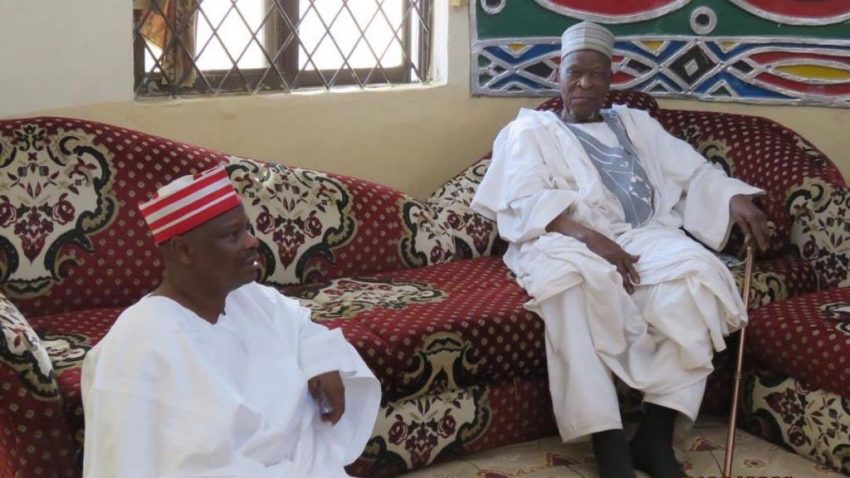
The father of former Kano State Governor, Dr Rabi’u Musa Kwankwaso, Alhaji Musa Sale Kwankwaso, aged 93, is dead.
Alhaji Musa Sale Kwankwaso who was the District Head of Madobi died on Christmas morning.
The media aide to the former governor, Saifullah Muhammad, announced the death of the Makaman Karaye, on his Facebook page in Hausa.
He has since been buried on Friday according to Islamic rites.
The Makaman Karaye left behind by two wives, 19 children (10 females and 9 males) and many grandchildren.
34. Sheikh Ahmed Lemu
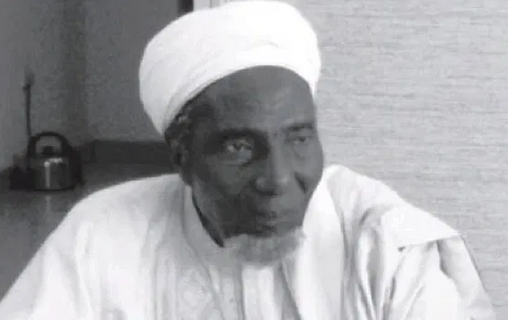
Popular Islamic scholar and retired justice, Ahmed Lemu is died on Christmas Eve (December 24).
He died at the age of 91 in Minna, Niger State.
His son, Nurudeen, announced the death on behalf of his family.
“It is with sadness and reverence to Allah that we announce the passing away of our father, Dr. Justice Sheikh Ahmed Lemu OFR, in the early hours of this morning in Minna. Burial arrangements to be announced later,” he said.
Lemu is one of the two Nigerians who have won King Faisal Prize.
He chaired the Presidential Panel on Post-Election Violence in Nigeria in 2011. He was also a member of the Nigerian Council of Religions, the Presidential Council for Youth Development, and various other national committees and councils.
35. Mobolaji Salu, Head of Business, MMA Termina2
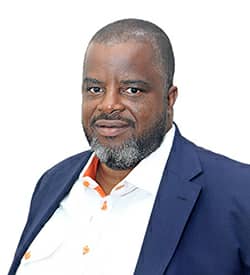
The Management of Bi-Courtney Aviation Services Limited, (BASL), operator of the Murtala Muhammed Airport, Lagos, Terminal 2 (MMA2), has announced the death of its Acting Head of Business, Mr Mobolaji Salu.
Mr Mikail Mumuni, Group Corporate Affairs Manager of the company, in a statement issued on Friday, in Lagos, said late Salu, formerly the Head of Operations of BASL, died on Dec. 24, after a brief illness.
The statement quoted the Chairman of BASL, Dr Wale Babalakin (SAN) as describing the death of Salu as “a big loss to the company, his family and the Nigerian Aviation sector.”
“Bolaji was a hardworking and diligent person who will be dearly missed by the Board, management and Staff of BASL, his family and his colleagues in the aviation sector in general,” Babalakin said.
36. Former Gombe Central Senator Saidu Umar Kumo
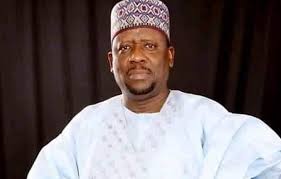
A former senator representing Gombe Central senatorial district, Gombe state, Senator Saidu Umar Kumo died on Sunday 27th December at the age of 71.
He died at the National Hospital Abuja, after a brief illness.
Before his demise, he was the head of the Atiku Abubakar presidential campaign in the North east in the 2019 presidential election.
Senator Kumo was among members of the Peoples Democratic Party (PDP) that defected to the ruling All Progressive Congress (APC) in January 2019 shortly before president Buhari won the Presidential seat.
He served as Gombe Central Senator from 1999 to 2003 before contesting the governorship seat of Gombe where he lost to ex-governor Ibrahim Dankwombo in 2011.
37. Popular Nigerian speaker, Ubong King
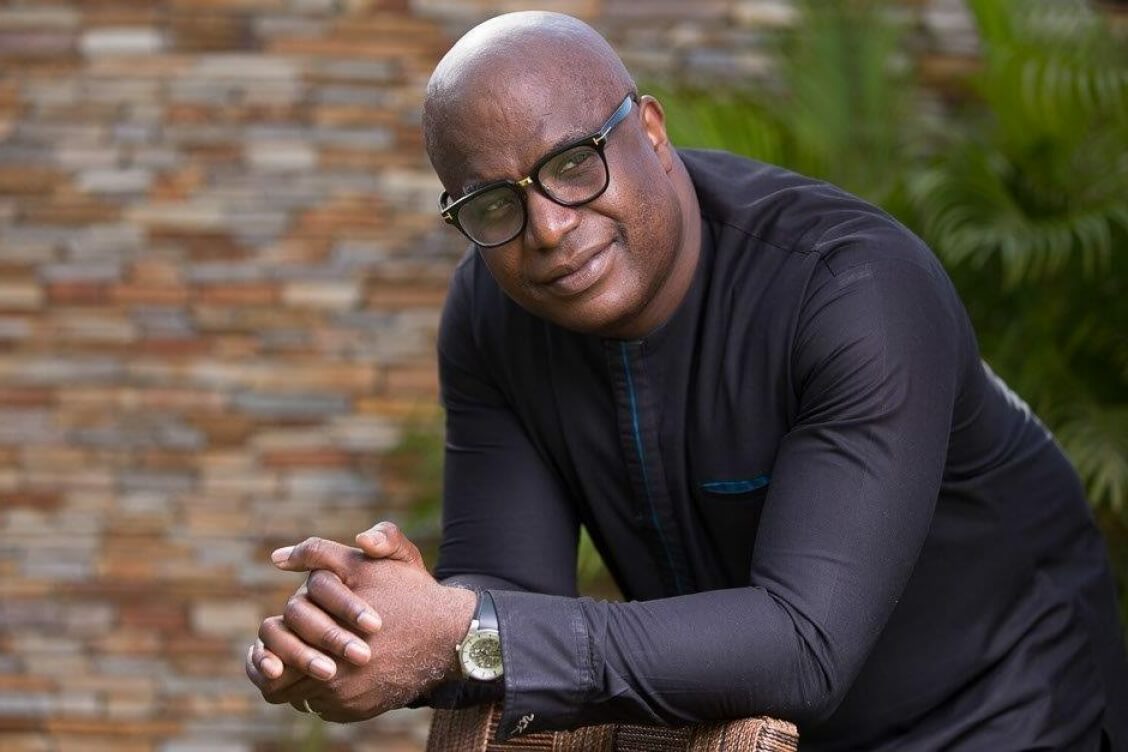
Popular Nigerian business leader and public speaker, Ubong King is dead.
He reportedly gave up his ghost in Lagos in the early hours of 26th December 2020.
The security expert and founder of Protection Plus Security Limited who was also known as the ‘Troublemaker’ was said to have tested positive for COVID-19.
King was a former chairman of The American Society of Industrial Security (ASIS) International Chapter 206, Lagos. He facilitated and spoke at leadership and management retreats within and outside Nigeria.
Ubong King began his career as a volunteer guard in the protocol department of the church he was attending at the time. King also worked as a consultant in a piggery, before venturing into the security industry. King went on to start Protection Plus Security Limited.
Ubong also curated the ‘ThinknationXX’ annual event that gathered people across Nigeria and Africa to help them with mental shift for business growth.
He is married to Unyime Ivy-King, and survived by his wife and four children.
38. Lotanna Udezue aka Biglo
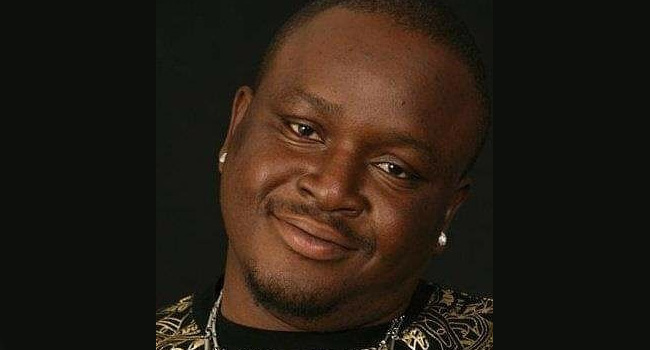
Veteran Nigerian rapper, music producer, Lotanna Udezue aka Biglo has died after a long battle with Kidney ailment.
His colleague, Jazzman Olofin announced his passing on his social media page.
He said Biglo who was receiving dialysis from an hospital in California, U.S, died on Saturday, Dec. 26.
Last year, there was a call for help, his cousin assisted him in creating a Gofundme account.
Biglo shot into limelight in 2004 with the hit ‘Delicious’ which featured 2shotz.
Although the track earned him a Hip Hop World Award for Best Rap Collabo, the chubby rapper, however, went underground after the buzz died down
39. National Chairman of Labour Party, Abdulkadir Abdulsalam
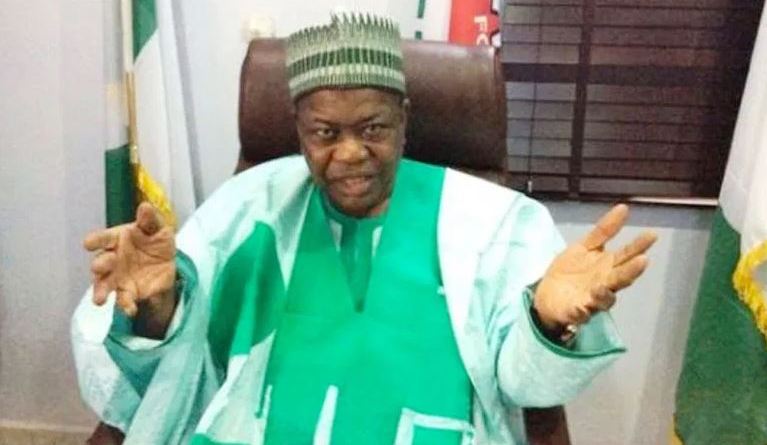
The National Chairman of the Labour Party (LP), Alhaji Abdulkadir Abdulsalam died on Tuesday, December 29, 2020.
He reportedly died from an undisclosed ailment.
The Deputy National Secretary, LP, Mr. Kennedy Chigozie confirmed the death to TheNewsGuru.com, TNG. He added that the party has been thrown into mourning following the demise of its national chairman.
40. Femi Odekunle, Member Presidential Advisory Committee Against Corruption (PACAC)
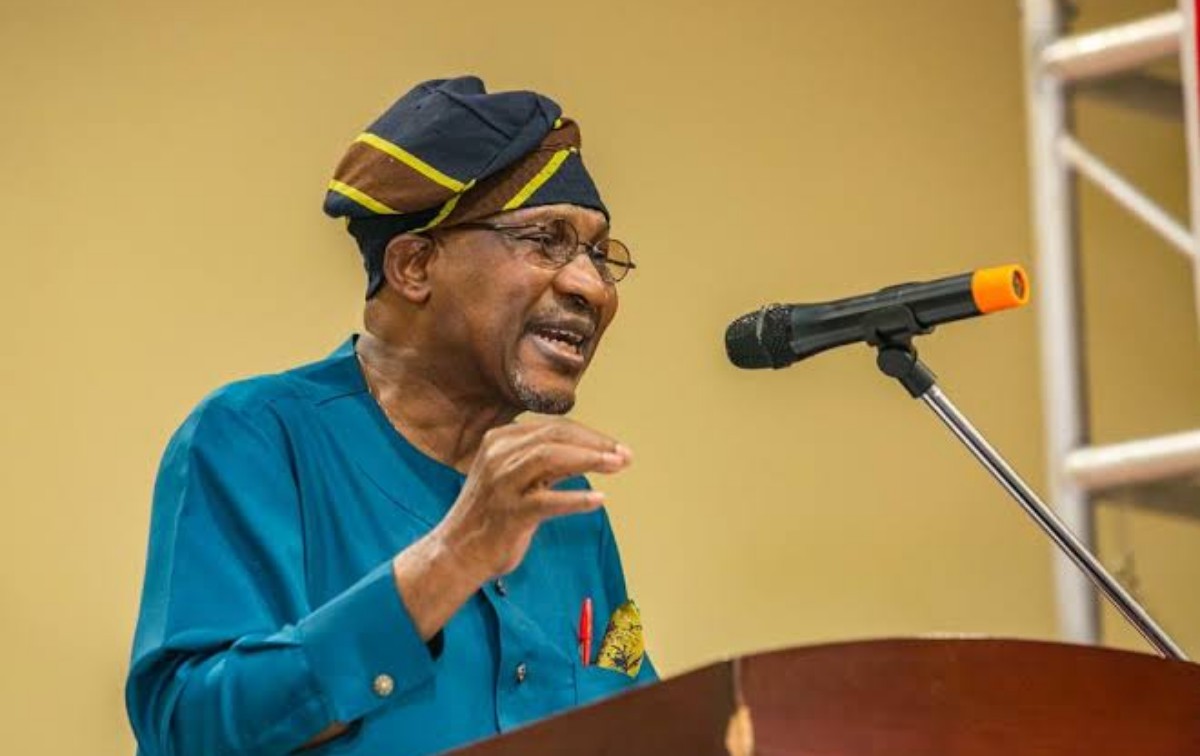
A professor of criminology and member of the Presidential Advisory Committee Against Corruption (PACAC), Femi Odekunle died on Tueday, December 29, 2020 at 77.
His death was confirmed by President Muhammadu Buhari’s spokesman, Garba Shehu.
“President Muhammadu Buhari has expressed utmost shock at the news of the demise of Professor Femi Odekunle, a member of the Presidential Advisory Committee Against Corruption, PACAC,” Mr Shehu wrote in a statement sent to newsmen.
“The President described Professor Odekunle as valued friend and a towering intellectual giant with impeccable knowledge of his chosen academic field, criminology and in such others as governance and administration.
“His death is very saddening,” said the president. “His lasting contributions, as well as his charisma, wit and sense of humor, will be sorely missed by all us, his friends and associates. May the Almighty repose his soul.”

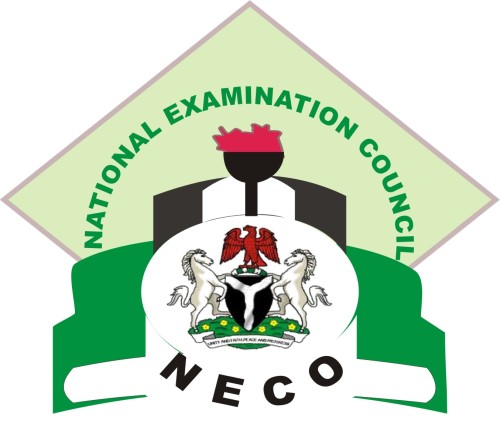
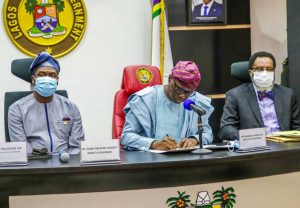

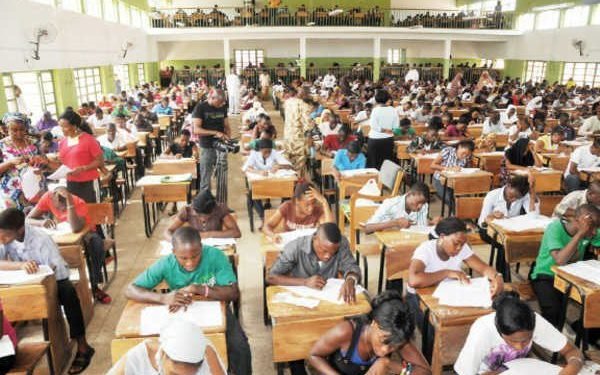
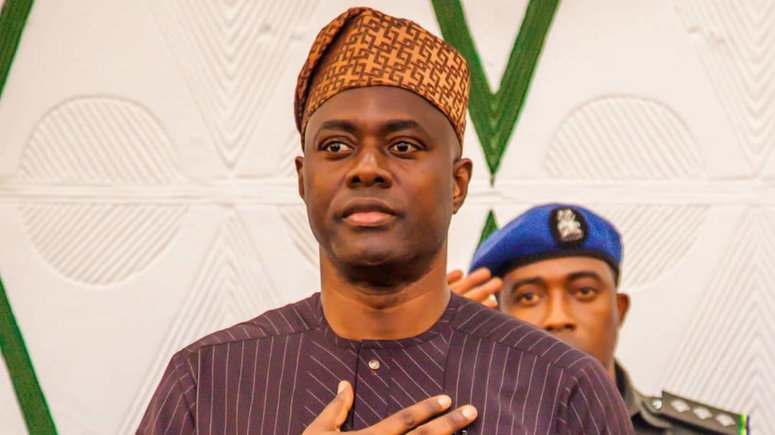
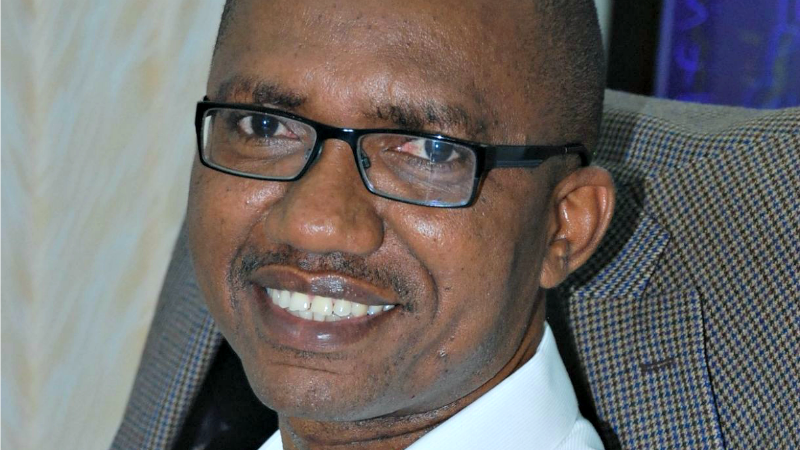
![TNG Year in Review: 40 shocking VIP deaths of 2020 [Photos]](https://thenewsguru.ng/wp-content/uploads/2020/12/Year-2020.jpg)







































